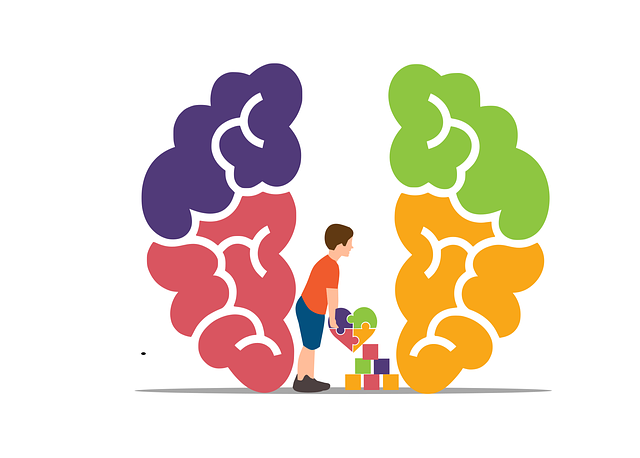Depression among adolescents is a growing concern, but early detection through Christian counseling offers a unique and effective approach. Integrating faith with evidence-based practices, this therapy provides teens with a safe space to process emotions while aligning their experiences with spiritual beliefs. Therapy for adolescent teens (Christian Counseling) teaches coping strategies like prayer and biblical study, empowering them to navigate life's challenges holistically. By combining emotional support with spiritual guidance, this holistic approach builds resilience and long-term mental well-being.
Depression among adolescent teens is a growing concern, yet preventable with the right strategies. This article explores comprehensive approaches to combat this prevalent issue, from recognizing subtle signs to effective therapeutic methods. We delve into the unique role of Christian counseling in providing support and guiding teens towards healing. Additionally, we present building resilience as a key strategy for long-term mental well-being, offering hope and practical tools for both teens and those seeking to aid them. Discover evidence-based practices, including therapy tailored for adolescent teens, to empower positive mental health journeys.
- Understanding Depression in Adolescent Teens: Recognizing the Signs
- The Role of Christian Counseling in Prevention and Support
- Therapeutic Approaches for Effective Depression Management
- Building Resilience: Strategies for Long-Term Mental Well-being
Understanding Depression in Adolescent Teens: Recognizing the Signs

Depression among adolescent teens is a growing concern, but understanding its signs can be life-saving. This mental health issue often manifests as persistent feelings of sadness, loss of interest in activities once enjoyed, changes in appetite and sleep patterns, fatigue, difficulty concentrating, and, in severe cases, thoughts of self-harm or suicide. Recognizing these symptoms is crucial as early intervention through therapy for adolescent teens can significantly improve outcomes.
Christian counseling offers a unique approach to mental health support by integrating faith with evidence-based practices. It provides a safe space for teens to explore their emotions while aligning their experiences with spiritual beliefs. This form of therapy empowers adolescents and fosters resilience, not just in managing depression but also in navigating life’s challenges. In the context of a comprehensive Mental Health Policy Analysis and Advocacy, communication strategies, and stress reduction methods, Christian counseling can be a powerful tool for holistic well-being.
The Role of Christian Counseling in Prevention and Support

Christian counseling offers a unique approach to depression prevention and support, particularly for adolescent teens. This form of therapy is based on faith and spiritual principles, providing a safe space for individuals to explore their emotional well-being while integrating their religious beliefs. Through Christian counselors, teens can learn effective coping strategies that go beyond traditional talk therapy. These strategies often include prayer, biblical study, and the application of spiritual teachings to daily life challenges, fostering resilience and a deeper sense of purpose.
The role of Christian counseling in depression prevention isn’t limited to private practice; it also extends to community efforts. Public awareness campaigns development centered around emotional well-being promotion techniques can effectively reach out to young people. By combining faith-based support with evidence-based practices, such as stress management strategies, counselors can empower teens to navigate life’s pressures and maintain mental health. This holistic approach addresses the individual’s spiritual, emotional, and psychological needs simultaneously, ensuring comprehensive care tailored to their unique circumstances.
Therapeutic Approaches for Effective Depression Management

Depression management for adolescent teens often involves therapeutic approaches that promote emotional well-being and healing. Christian counseling has emerged as a popular and effective strategy, offering a supportive environment where teens can explore their feelings and beliefs under the guidance of trained professionals. This form of therapy focuses on fostering resilience and coping mechanisms tailored to each individual’s unique experiences.
The therapeutic process begins by evaluating the teen’s emotional state and identifying triggers or underlying causes. Techniques aimed at promoting emotional healing are then implemented, such as cognitive-behavioral therapy (CBT), which helps to reframe negative thought patterns. Additionally, community outreach program implementations can play a vital role in providing ongoing support networks, peer connections, and resources that contribute to the overall emotional healing processes of adolescent teens dealing with depression.
Building Resilience: Strategies for Long-Term Mental Well-being

Building resilience is a key strategy for long-term mental well-being, especially for adolescent teens navigating life’s challenges. Christian counseling offers a unique approach to fostering strength and coping skills development. Through therapy, teens can learn to manage stress reduction methods effectively, enhancing their ability to cope with difficult situations. This proactive approach not only provides tools for the present but equips individuals with confidence boosting techniques to persevere through future trials.
By engaging in regular counseling sessions, adolescents gain insights into their emotions and thought patterns, allowing them to develop healthier ways of processing stress and adversity. Christian counseling often incorporates faith-based principles, offering a sense of purpose and community support, which can significantly contribute to preventing depressive episodes. This holistic approach addresses not just the symptoms but also the underlying factors, ensuring teens build lasting resilience for their mental health journey.
Depression among adolescent teens is a pressing issue, but with the right strategies, prevention and management are achievable. By recognizing early signs and understanding the role of counseling, specifically Christian counseling, young individuals can receive much-needed support. Therapeutic approaches, such as cognitive-behavioral therapy (CBT), offer effective tools to combat depression. Additionally, building resilience through various strategies promotes long-term mental well-being. Integrating these prevention methods, including therapy for adolescent teens and faith-based counseling, empowers teens to overcome challenges and lead fulfilling lives.














